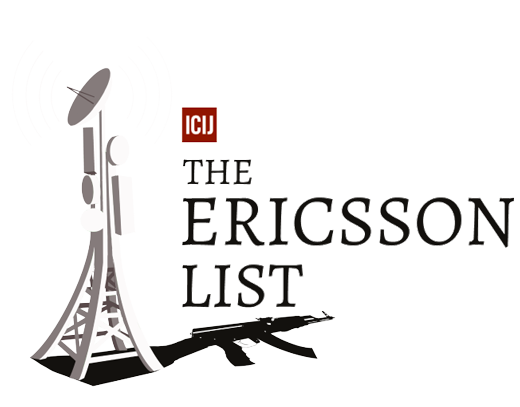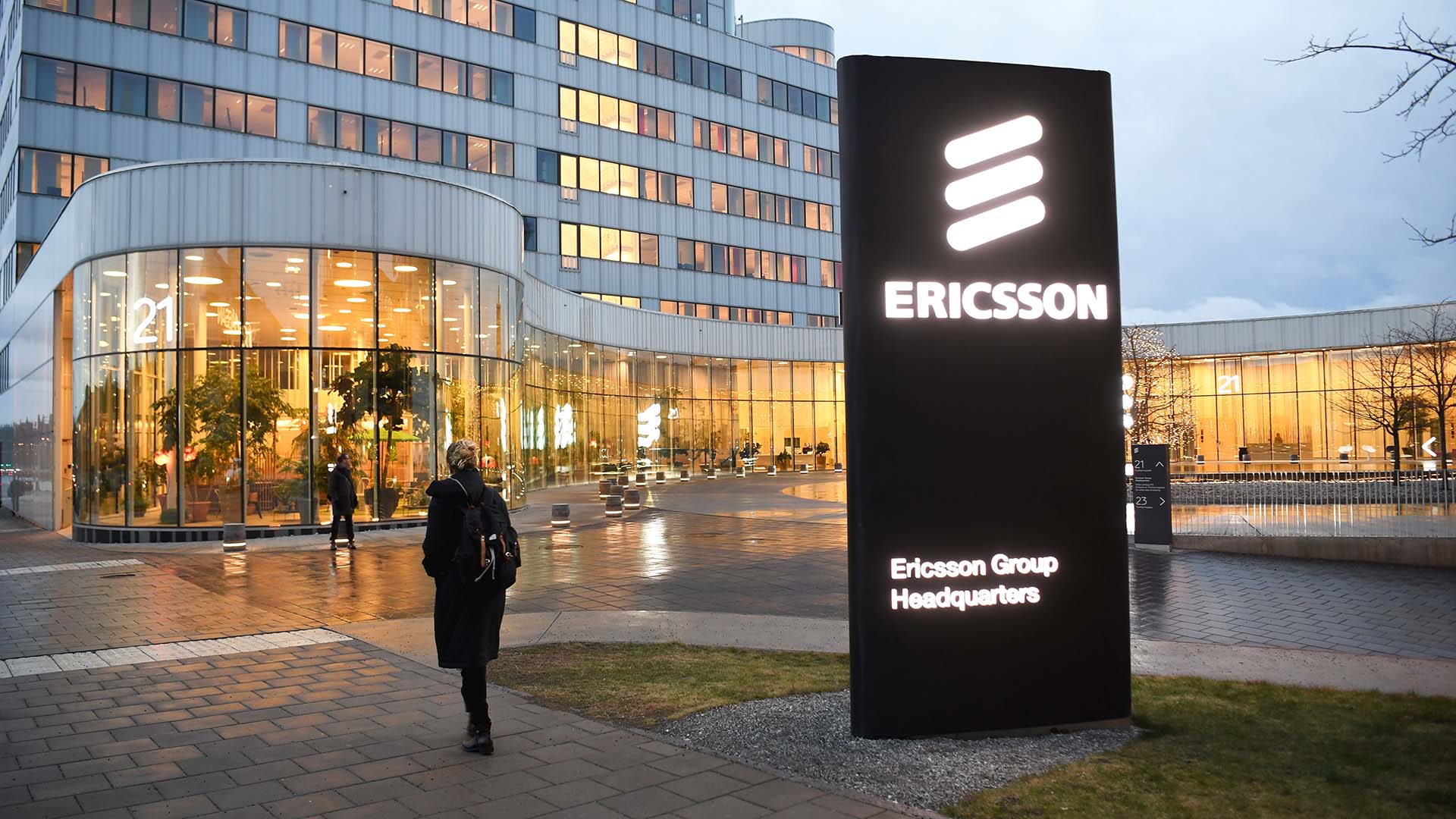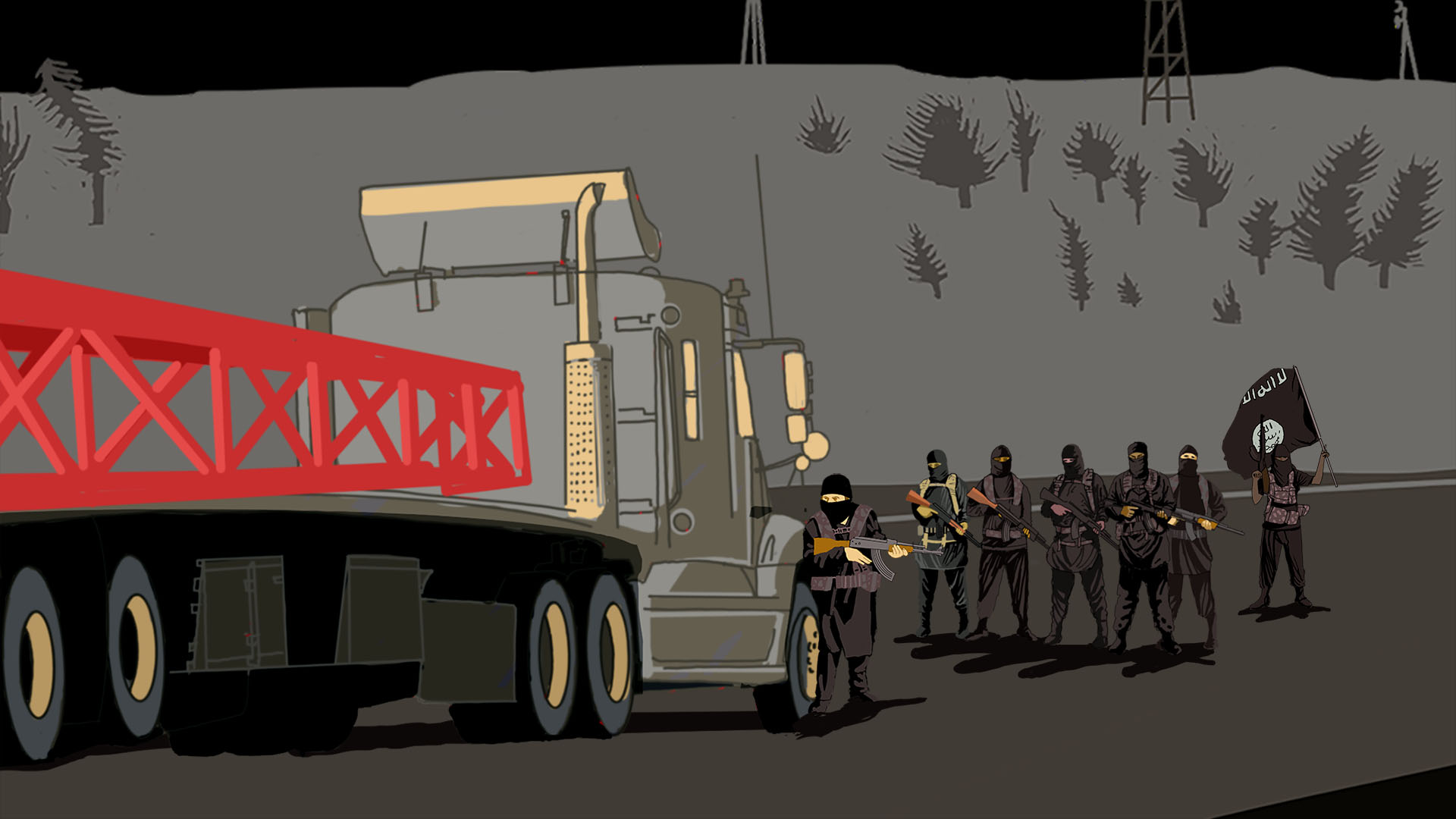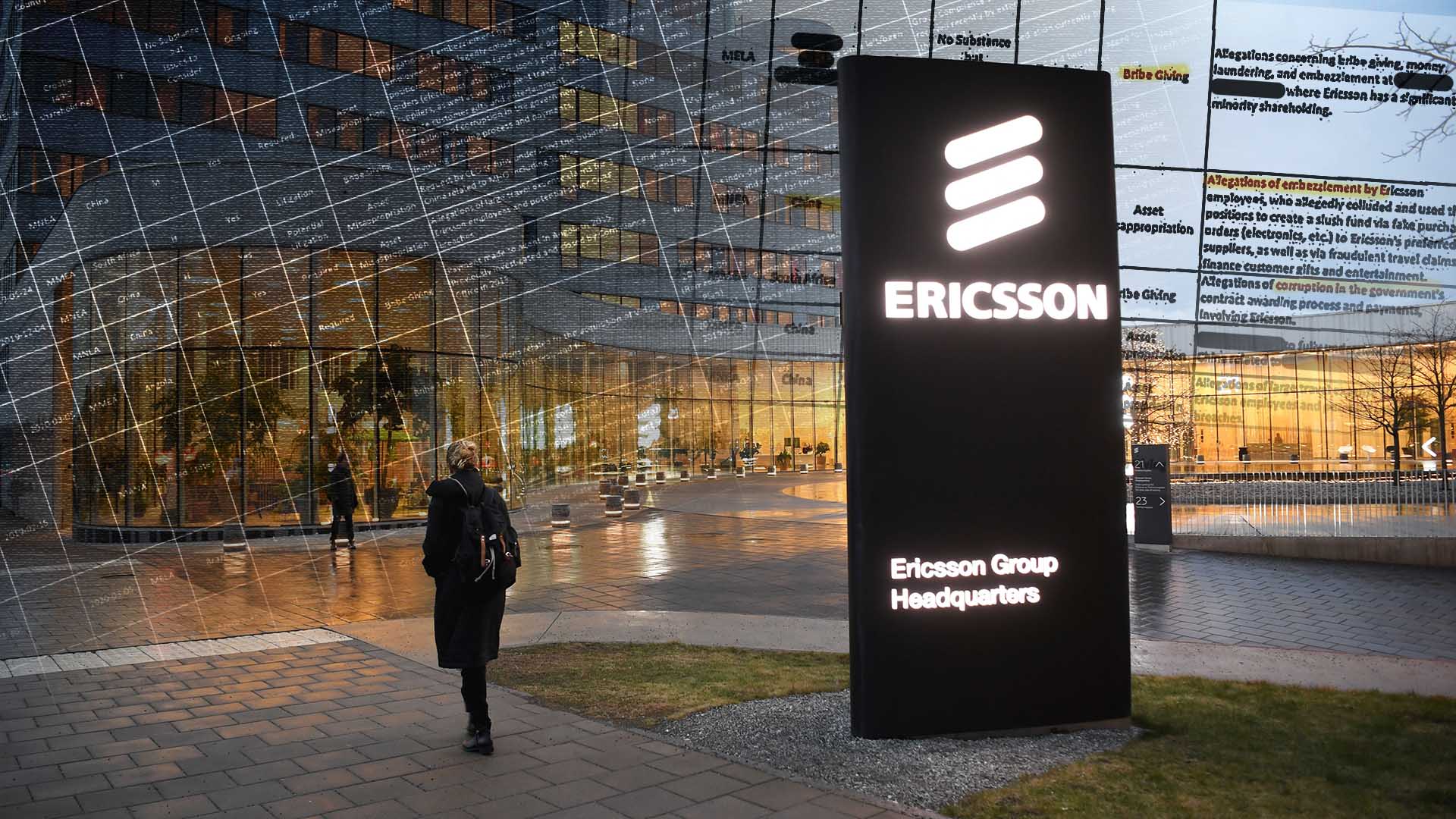MEET THE INVESTIGATORS
Meet the Investigators podcast: Behind the Ericsson List
Journalists Maggie Michael, Amir Musawy and Delphine Reuter talk about the challenges of unpacking the Ericsson List leaked files, and finding sources willing to speak out about corruption, ISIS and the real, human cost of continuing to do business in a warzone.
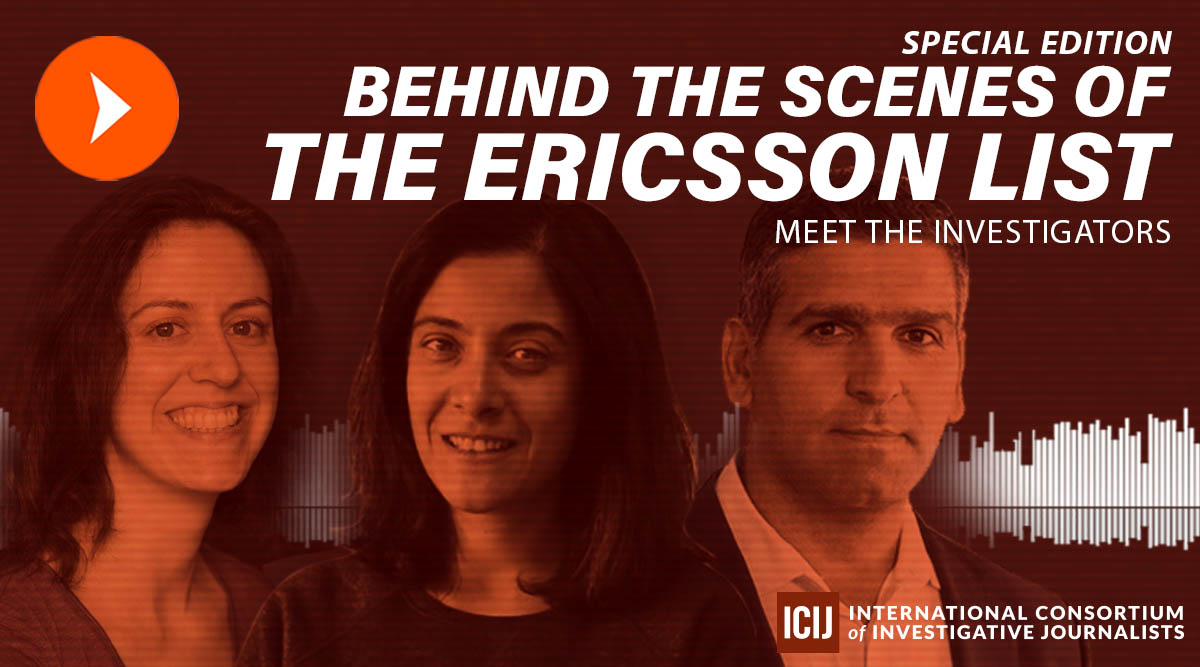
The International Consortium of Investigative Journalists collaborates with hundreds of members across the world. Each of these journalists is among the best in his or her country and many have won national and global awards. Our monthly series, Meet the Investigators, highlights the work of these tireless journalists.
In this month’s special edition of the podcast, we’re taking you behind the scenes of our latest investigation, the Ericsson List. Journalists Maggie Michael and Delphine Reuter from ICIJ and Amir Musawy from German broadcaster NDR join first-time podcast host and ICIJ editorial fellow Nicole Sadek for a conversation about the challenges of corroborating evidence, finding sources and reporting on-the-ground in Iraq to uncover telecom giant Ericsson’s links to corruption and possible terror financing in the war-torn country.
This podcast was recorded in early March. Since then, Ericsson has been accused of being in breach of an agreement with the U.S. Justice Department, and key investors have been vocal in demanding both accountability and reform. On Tuesday, Ericsson holds its annual meeting, where shareholders have been urged to rebuke the company’s leadership, including CEO Börje Ekholm, for failures to disclose problems in the telecom giant’s Iraq operations.
ICIJ’s award-winning Meet the Investigators series is emailed exclusively to ICIJ’s Insiders each month before being published on ICIJ.org, and is one of a number of ways we like to thank our community of supporters who are so integral to our independent journalism. You can join our Insiders community by making a donation to ICIJ. Thanks to all our ICIJ Members who have shared their stories with us, and to all our supporters for helping ICIJ continue its work.
TRANSCRIPT
Nicole Sadek: Welcome back to Meet the Investigators from the International Consortium of Investigative Journalists. For those who are new to this series, we spend each month getting to know one reporter who works with ICIJ — their greatest hits, their most challenging stories, their best advice. But this month, we’re switching things up. We’ll be discussing ICIJ’s latest investigation, the Ericsson List, with our reporter Maggie Michael…
Maggie Michael: Hi, I’m Maggie Michael, and I’m based in Cairo.
Nicole: Our data journalist Delphine Reuter…
Delphine Reuter: Hi, I’m Delphine Reuter, and I’m based in Spain.
Nicole: And our partner Amir Musawy, a reporter with the German broadcaster NDR…
Amir Musawy: Hi, how are you? Here is Amir Musawy.
Nicole: And finally, I’m Nicole Sadek. I’m ICIJ’s new editorial fellow, and I’ll be your host today. Not only is this my first time in the host’s chair, but it’s also my first time working on an ICIJ investigation. And, let me tell you, there’s a lot to cover. So let’s get into it.
If you grew up in the age of Smartphones, like I did, you might be less familiar with the Swedish telecom company Ericsson. Ericsson was a household name in the early days of mobile phones, but today it focuses on supplying telecom infrastructure, like cell towers, to phone companies and governments around the world. You’ve probably heard of Nokia and Huawei. Well, Ericsson is like the third member of that trio.
So Maggie, what’s the Ericsson List investigation about?
Maggie: The investigation is mainly about the company misconduct in a country like Iraq throughout a decade. Ericsson appeared to have paid militant groups like ISIS in order to secure routes to transport its equipment across the country and also put its subcontractors’ lives at risk by forcing them to operate in cities under control of ISIS.
Nicole: We’re talking about events that happened between 2011 and 2019. That encompasses the rise of ISIS and various attacks that the terrorist group took credit for.
[Audio clip] AFP: June 2014, Islamic State fighters begin a major offensive against the Iraqi government.
Maggie, take us back to the beginning when this story first landed on your lap.
Maggie: The first time I heard about it [was] from [the] ICIJ managing editor. He called me and said we received these documents from a whistleblower. And these are centering around Iraq and the company operation in Iraq. For me, as an Egyptian journalist in Cairo, I’m very interested in anything related to Iraq and the region and the countries around me. But I started in November until now, and that was the period of time we were digging into these documents and making calls and trying to verify and do additional reporting about the findings in the internal report.
Nicole: Maggie, along with ICIJ chief reporter Sydney Freedberg and over 100 more reporting partners, spent weeks verifying a series of documents leaked to ICIJ, the largest of which is a confidential Ericsson compliance report detailing the company’s own corrupt practices in Iraq. It summarizes the accounts of 28 witnesses and millions of emails. It also details egregious instances of fraud and bribery and names the employees who let it happen.
Delphine, you were our data wiz on this project. It’s probably fair to say you know these documents like the back of your hand. What did your role entail in this investigation?
Delphine: Personally, I worked on the payments, like I tried to understand, if we talk about how corruption happens, a lot of it is going through the payments that people make to companies or people to get a specific service in return, you know if it’s in the form of bribery, fraud, whatever.
Nicole: What’s an example of the improper payments you found?
Delphine: One of the main findings of this investigation was that Ericsson in its own words in its own compliance documents actually recognized that it might have paid ISIS, a terrorist organization, simply because they were trying to continue doing business at a time when ISIS was controlling specific checkpoints in Iraq.
Nicole: As ISIS and the Iraqi government battled for territory, truck drivers transporting equipment for Ericsson were faced with two options: either drive through government checkpoints and face lengthy delays, or pay ISIS militants to use a faster route called the “Speedway.”
Delphine: So, there were strong suspicions in that document that actually by paying subcontractors that were proposing to use that separate route that went through those areas, Ericsson actually financed, potentially financed terrorist organizations because they had to go through those checkpoints. So it’s a typical payment or series of payments that were made over a period of time. We understood very quickly that it was very important for the reporters to take the time they needed to corroborate a lot of the information, that there was going to be a lot of work involved in actually talking to people, finding witnesses, and trying to really come up with a picture of what had happened because the report was not in itself sufficient to explain everything.
Nicole: Amir, you were one of a handful of reporters who was actually able to travel to Iraq to corroborate the report. What was it like being on the ground, in your native country?
People are not so open to talk about corruption in Iraq. Everyone knows about corruption. No one wants to talk openly about it. — Amir Musawy
Amir: It was not the first time for me to work in my native country in Iraq. But with this kind of investigation report, it was something special. It was not easy to find narratives and evidence about reporting and about finding people to talk with us. People are not so open to talk about corruption in Iraq. Everyone knows about corruption. No one wants to talk openly about it.
Nicole: So, Amir and Maggie, as two of the lead reporters on this project, how did you get people to talk to you?
Maggie: Our hardest person to reach out [to] was the main character in one of the main cases mentioned in the documents, where one of the subcontractors were kidnapped by ISIS after he was told by Ericsson to deliver a message or a letter to the militants to seek permission to work in Mosul, the second-largest city in Iraq. The thing is his name came in the document, and it’s only one name. And it’s like a mysterious thing, like what is Affan? I remember, Sydney, my colleague, the first time we started to talk about him was like, who is Affan?
Nicole: Not only did Maggie and Sydney answer that question, but they actually found Affan after doing some basic Google searches and connecting with his friends and family.
Maggie: And then finally after we got his contact number, he blocked us. That was really frustrating.
Amir: She and our colleagues tried to talk with him, but he was closed. He don’t want to talk. And I thought about, O.K., he’s a guy, he don’t want to talk because he has a bad feeling about that. But what would happen if we come from the point that he thinks that he’s a victim?
Nicole: So eventually, Affan agreed to speak with both of you. And the story he told was really powerful. He talked about being handcuffed by militants, having a bag put over his head, having guns pointed at him. I was struck by how calm he was when he told that story. Did that surprise you?
Amir: We were also surprised how cold is he, and how calm in explaining all the details. Even my cameraman told him when we finished, he told him, “Hey, come on, you’re really very cold when you’re talking. What’s going on?”
Maggie: I can understand why he is not showing emotions, but clearly, from everything he said, Affan is still like traumatized. He can’t go back to the city. He almost left his family. He can’t return to his family. As we wrote in the story about him, he lost his job. He doesn’t have a stable income. He even didn’t get married, so it changed his life.
Nicole: ICIJ and partners decided to withhold the source’s full name because he still fears for his life. This speaks to the safety concerns that still exist in Iraq today. What were the other challenges of reporting a story based in Iraq?
Delphine: It was navigating these very patchy documents knowing that the information it contains is explosive. And then, at the same time, managing the frustration that you have just because a lot of it cannot be fully understood or fully corroborated because there’s so many risks involved with the people who are mentioned in this report or who were connected to the people mentioned in this report.
Maggie: I did many interviews, and I couldn’t use any names. So, they remained anonymous people. And then, we couldn’t use the interviews because it’s a security threat for people to speak about powerful figures who are running these companies. They’re not only businessmen. They’re connected to militias. They’re connected to militant groups, different factions.
Nicole: And then there’s more. This wasn’t the first time Ericsson’s business practices came under scrutiny. In 2019, the U.S. Department of Justice fined Ericsson more than $1 billion for violating its anti-corruption law in five countries. To our surprise, Iraq was not one of the countries mentioned in that settlement. Ericsson kept the information about its shadowy deals in Iraq secret until a few weeks ago when ICIJ started asking questions.
Maggie, this was quite the saga. What happened after ICIJ posed questions to Ericsson?
Maggie: ICIJ sent detailed questions to Ericsson, asking to give comments before publication, but instead of responding to ICIJ, Ericsson made public statements admitting and acknowledging that they actually did an investigation in Iraq that involved corruption and bribery and possible payments to militant groups while transporting equipment across the country. And then the CEO made several interviews with different media organizations. None of them have the documents. Yeah, that was like my first time ever to see a response from like, you’re doing an investigation and you’re giving every player, every party, every person mentioned in the investigation the right to respond, but instead of talking to you and responding to you, they go public and just leak the leak.
Nicole: To an outsider, this is a story about corruption in a part of the world where corruption is quite normalized. So why is this story important?
Delphine: You know things happen, but you might not fully understand how they happen and why it matters. And if you have a specific example that details exactly how things happen and how corruption is enabled by one of the biggest multinationals, you can actually understand better what are the course of action that a company like this could do, like what are the solutions to this issue, what kind of impact it has on the life of normal people like Affan and others who were exposed to the consequences of Ericsson continuing to do business in a place like Iraq at that time. And it actually gives you answers to the many questions you might be asking yourself about why should I care about this corruption? There is a human impact and there is a role that multinationals, regulators, you know, whoever, U.S. authorities have to play to make sure this doesn’t happen again or if it does then there is a proper way to stop it or to diminish its impact in the future.
Nicole: It’s been a few days since the project was first published, and we’re already seeing a significant impact. Within one day, Ericsson stock dropped more than 6% in European trading and Citibank financial analysts said the shares could become “uninvestable.” Ericsson also announced that the Department of Justice said the company had breached its 2019 corruption agreement by failing to disclose sufficient information about its Iraqi business. Amir, beyond the corporate response, what has the impact been like on the ground in Iraq?
Amir: The reaction of the story has been wide in Iraq, people talking with me about it. They understood why they are paying a lot of money for calling, for using the network. Who is earning money from their pockets? And that is why they were very interested in this story.
Nicole: We’ve touched on a lot but I don’t want to give the whole story away. So is there anything else any of you would like to add?
Maggie: I can add that this is not the end of this investigation. This investigation could encourage other journalists to look into the performance and business models of multinational companies around the world, especially in places like Iraq or Libya or Sudan or Egypt and where they have double standards. This investigation, it’s an invitation to the rest of the journalists around the world to look into this, every single country, how they’re doing business and how they’re enriching the corrupt. It’s not only, corruption doesn’t only come from inside this country, but also from outsiders, from whatever multinationals is doing business.
Nicole: I think that’s a great place to end. Maggie, Delphine, Amir, thank you so much for joining me today. And thank you to everyone listening. Visit our website at icij.org to read the Ericsson List. And share this episode on social media using #MeetTheInvestigators. We’ll be back again next month to speak with another ICIJ member. Until then, goodbye.
If you’re a fan of our Meet the Investigators series, please consider making a donation to support ICIJ. Not only will your donation help support investigations like the Ericsson List, but as an ICIJ Insider, you’ll also receive sneak previews, access to exclusive chats with reporters and behind-the-scenes content like this delivered straight to your inbox. Donate today, and support independent investigative journalism.
